New SEC Filings Show Surge in Institutional Adoption, Bitcoin Snubbed as DNC Omits It from Party Platform, VP Harris Pushes for Price Controls and Tax on Unrealized Capital Gains
News Block #50 (08/22/2024)
Listen to the latest episode of the News Block featuring Sam Callahan below. 👇
New SEC Filings Show Surge in Institutional Adoption
The deadline for institutional investment managers to file their 13-F documents passed last week, revealing these firms' recent activities regarding the spot Bitcoin ETFs. The trend is clear: they’ve been buying.
Bitwise CIO Matt Hougan said that, by his count, the number of institutions holding Bitcoin ETFs increased by 30% last quarter. He added that among the ones that already owned them in Q1, two-thirds either increased their position or held steady. Those are some pretty impressive diamond hands, considering Bitcoin’s price volatility during that time.
Coinbase came to a similar conclusion. It estimates that institutions managing at least $100 million in assets now own 24% of all ETF shares, up from 21% in the first quarter.
To go one level deeper, Coinbase calculated that the portion of these large institutions that are investment advisors increased from 30% to 36%. They now hold 9% of all Bitcoin ETF shares.
This is probably related to the fact that we just learned from these new filings that Goldman Sachs and Morgan Stanley have become some of the largest holders of these ETFs. These banks are likely holding shares on behalf of their clients in their wealth management arms. In other words, investment advisors within these banks are allocating on behalf of their clients.
This comes after Morgan Stanley recently became the first major bank to allow its 15,000 advisors to actively recommend Bitcoin ETFs to its clients.
It’s nice to see investment advisors become a greater percentage of the institutional investors buying these ETFs because they are more likely to view Bitcoin as a long-term investment rather than a trade. The same can’t be said for hedge funds, which remain some of the biggest holders of these Bitcoin ETFs. According to Bloomberg, more than half of the top 20 holders of IBIT—BlackRock’s ETF—are large hedge funds.
Furthermore, according to River, 60% of the world's top 25 largest hedge funds have some exposure to Bitcoin ETFs, and not a single one reduced their holdings last quarter. In fact, nearly half of them increased their exposure during that time.
This is undoubtedly good news, but it’s important to note that this doesn’t necessarily mean that these hedge funds are long-term bullish on Bitcoin. You have to consider a fund’s investment strategy.
For instance, some of the largest holders of Bitcoin ETFs, like Millennium, Point72, and Renaissance Technologies, incorporate quant trading as part of their investment strategies. This means they use algorithms to search for arbitrage opportunities and execute trades. This matters because the algos couldn’t care less if they’re trading Bitcoin ETFs, corn futures, Brazilian bonds, or Apple stock. If the algos determine that an opportunity no longer exists, they will dump that position just as fast as they bought it.
But for now, I don’t think we should be too picky about what institutions are gaining exposure to Bitcoin. All are welcome. The bigger takeaway is that institutional interest is surging.
Many thought this wave of institutional adoption would happen sooner, but these firms move much slower than retail investors when adopting a new asset.
Despite Bitcoin’s disappointing price performance over the last couple of months, net inflows of these Bitcoin ETFs still stand at $17 billion for the year.
This shows that there’s still substantial demand for them and that these large firms have some true conviction when it comes to this emerging institutional-grade asset.
Bitcoin Snubbed as DNC Omits It from Party Platform
Today, around 50 million Americans are estimated to have some exposure to digital assets. Because of this, politicians are recognizing that being pro-Bitcoin means potentially bringing a huge voting block to their side. And with the race to November expected to remain tight, it could make all the difference.
If the number of users hasn’t caught these politicians’ attention, then the money behind the cause most certainly has. According to Federal Election Commission disclosures, Fairshake, the crypto super PAC, recently became the largest super PAC in the world, surpassing $200 million.
This is why we’re seeing shifts in crypto policies from both major parties. The Republican National Committee was the first to make waves when it updated its policy platform to include Bitcoin, saying it would defend the right to self-custody and mine Bitcoin to “champion innovation.”
Soon after, the Harris campaign responded by reportedly reaching out to top crypto companies to “reset crypto relations.”
But is it too little, too late? For the last four years, the Biden/Harris administration has been outright hostile toward the broader crypto industry, and right now, there is no love lost between them.
But today, there seems to be growing recognition within Democratic circles that the recent poor treatment of this industry may come back to haunt them, and now they appear desperate to repair relations.
Over the last several weeks, there have been several meetings between crypto executives and top Democrats, including a Zoom meeting that reportedly turned ugly and a Crypto4Harris town hall that consisted of pre-recorded videos and Democrats reading from scripts. Harris herself didn’t even attend her own event. Gemini Co-Founder Tyler Winklevoss described it as a “clown show.”
Yet, this Wednesday, Harris’s Senior Campaign advisor said she would support policies that will help digital assets grow. I’ll believe it when I see it.
Like many others, I’m not really buying this whole “crypto policy reset.” It feels like lip service more than anything, and all signs point to this being the case.
Galaxy Digital’s Alex Thorn wrote a thread that provided evidence that Kamala Harris is moving the chess pieces in place to continue the current administration's crypto crackdown.
Harris is reportedly working with Brian Deese and Bharat Ramamurti to shape her economic policy agenda. They are two former economic advisers of the Biden administration who have been described as the “top crypto critics” within the White House.
The nail in the coffin came when Democrats released their party policy platform, and Bitcoin and crypto were not even mentioned once. The optimistic view is that not having any negative language in the policy platform actually shows that the DNC has shifted its stance, but still, the omission spoke volumes to the industry.
As Democrats attempt to convince the industry that they've suddenly become supportive of Bitcoin, it highlights that there’s little upside to being anti-Bitcoin today. The campaign battle is shifting from which political party is pro-Bitcoin to which candidate is more pro-Bitcoin.
This is the game theory playing out, and it's really fascinating to see unfold.
VP Harris Pushes for Price Controls and Tax on Unrealized Capital Gains
Now, I’m really not trying to get political in this newsletter. I truly believe that Bitcoin is a bipartisan issue. I don’t see blue, I don’t see red, I just see orange. However, I believe that this election's outcome will greatly influence the adoption of Bitcoin in the United States, at least in the short term.
When I evaluate candidates, I essentially look at three things: 1.) their track record, 2.) their views on Bitcoin, and 3.) their policies.
When it comes to the Democratic Party, we already went over the first two, but what about the third one?
Well - we got some more insight into those this week, and they will make any person who believes in free markets feel a little nauseous.
In a recent speech, Harris echoed Elizabeth Warren when she blamed the high food prices—not on excessive government spending—but on greedy grocery stores.
Harris then promised to implement the first-ever federal ban on price gouging on food.
First off, according to a study from New York University, the American grocery industry had an average net profit margin of 1.18% last year. That’s razor-thin! These grocery stores aren’t price gouging to make excessive profits.
They are increasing their sticker prices because their costs are also going up due to reckless fiscal and monetary policies that have driven up the cost of doing business. Said differently, they are doing it to keep their doors open.
Secondly, it’s hard to put into words just how bad of an idea price controls are.
I highly suggest anyone who thinks price controls are a good policy read “Forty Centuries of Wage and Price Controls: How Not to Fight Inflation.”
Here are a couple of my favorite quotes from the book:
"Inflation is always and everywhere a monetary phenomenon. It is caused by an excess of money chasing too few goods. Wage and price controls do nothing to stop the printing presses or to increase production. They only make matters worse."
“The lesson of forty centuries of wage and price controls is that they simply do not work. By holding prices down artificially, governments encourage waste, inefficiency, and a black market, and they discourage production. In short, price controls distort the very economy they are supposed to help…every attempt to control prices has ended in disaster, with inflation running rampant and economies in ruins."
By “discourage production,” the author means that price controls interfere with the free market setting prices and balancing supply with demand. When you mess with price signals, producers have no idea how to value a good or whether they can profit from increasing the quantity supplied, so they stop producing altogether. This causes food shortages and people eventually go hungry.
Don’t believe me? Just ask a Venezuelan. They know a thing or two about how price controls can lead to empty grocery store shelves.
But Harris’s poor economic policies don’t stop there…she also plans to increase the capital gains tax to 44%, increase the corporate tax rate to 28%, and there’s even talk that she will keep Biden’s Billionaire Minimum Income tax.
This tax proposal would require every high-net-worth individual to pay 25% of their total income, including unrealized capital gains. This would be the first time in history that unrealized capital gains would be taxed, and it's an absolutely ludicrous idea.
I mean…imagine your house going up in value on paper, and then you have to pay taxes on it before you have actually sold it and realized the profits. That’s insane! Where would you get the extra cash? And what if the value of the house goes down the next year? Congrats – you just paid taxes on money you never had. Ultimately, this would only discourage investment and harm economic growth.
If someone thinks that this tax is just for the wealthy and, thus, will never happen to me, then they are ignoring history. Below is a table of the income tax rate from 1913. As you can see, tax policies have a way of expanding.
Taxing unrealized gains and imposing price controls are both signs of a government becoming increasingly interventionist and extreme to address underlying problems, such as massive debt, severe economic imbalances, and social unrest.
The push for wealth redistribution and increased government control can indicate that the end of a long-term debt cycle is near, as these measures reflect a desperate attempt to reset the economic order and address the unsustainable accumulation of debt, often at the cost of economic freedom and market efficiency.
Luckily for all of us, a new parallel system is being built that will reset the economic order while preserving the economic liberty of every individual in the world.
Until next week, keep stacking.
- SC
PS - We’re throwing a half-day Bitcoin seminar at the Ritz Carlton in St. Louis on September 14th. Come and join us for a day of Bitcoin and networking. This is the perfect event to bring friends and family members to learn more about why everyone should be saving in Bitcoin today.
Tickets are limited, so get yours today at Bitcoin Lunch & Learn.
If you enjoyed reading this post, you should consider subscribing to the News Block.
The News Block is powered by Bitdeer Technologies Group, a publicly-traded leader in Bitcoin mining that stands alone as the only vertically-integrated, technology-focused Bitcoin mining company.
Make sure to listen to my latest Coin Stories episodes, including Lyn Alden, Gloria Zhao, and Quoth the Raven.
Listen on Fountain and Earn Bitcoin: Click here
Listen on Apple Podcasts: Click here
Listen on Spotify: Click here
Listen on YouTube: Click here
NEW: Whitney Webb: Bitcoin as a Trojan Horse, Political Elite Corruption, Are Stablecoins the New CBDCs?
In this episode with Whitney Webb, we discuss:
- Is Bitcoin a Trojan horse that can fix our system?
- Are stablecoins the new CBDC?
- Financial tools of empires to siphon off wealth
- What you don't know about Peter Thiel
- Corruption in bipartisan public-private partnerships
- The way out of the matrix to freedom
Coin Stories Promotional Links and Discounts
Bitcoin 2025 - Bitcoin 2025 is heading to Las Vegas on May 27-29th! Join Natalie for her 4th Annual Women of Bitcoin Brunch! Get 10% off Early Bird passes using the code HODL.
Speed Wallet - For easy, low-cost, instant Bitcoin payments, we use Speed Lightning Wallet. Download it using this link, and Get 5000 sats when you use the promo code COINSTORIES10.
CoinKite - Your go-to tech company for top-notch Bitcoin self-custody solutions, including the popular ColdCard wallet. Get 5% off using my link.
Unchained Capital - We use Unchained for multisig collaborative custody. The company offers custody, buying, selling, IRA, and loans. Sign up using my link.
The Bitcoin Way - Master Bitcoin Self-Custody and gain peace of mind with the help of The Bitcoin Way - your 1-on-1 support for Bitcoin custody and privacy!
Efani - Protect yourself from SIM swaps that can hack your accounts and steal your Bitcoin. Join America’s most secure mobile service, trusted by CEOs, VIPs, and top corporations.
CrowdHealth - The Bitcoin community’s alternative to health insurance. I now spend less than $100 a month on my health care. Sign up using my link.
Orange Pill App - Connect with Bitcoiners and Bitcoin merchants wherever you live and travel on the Orange Pill App.
River is where we DCA weekly and buy Bitcoin with the lowest fees in the industry.




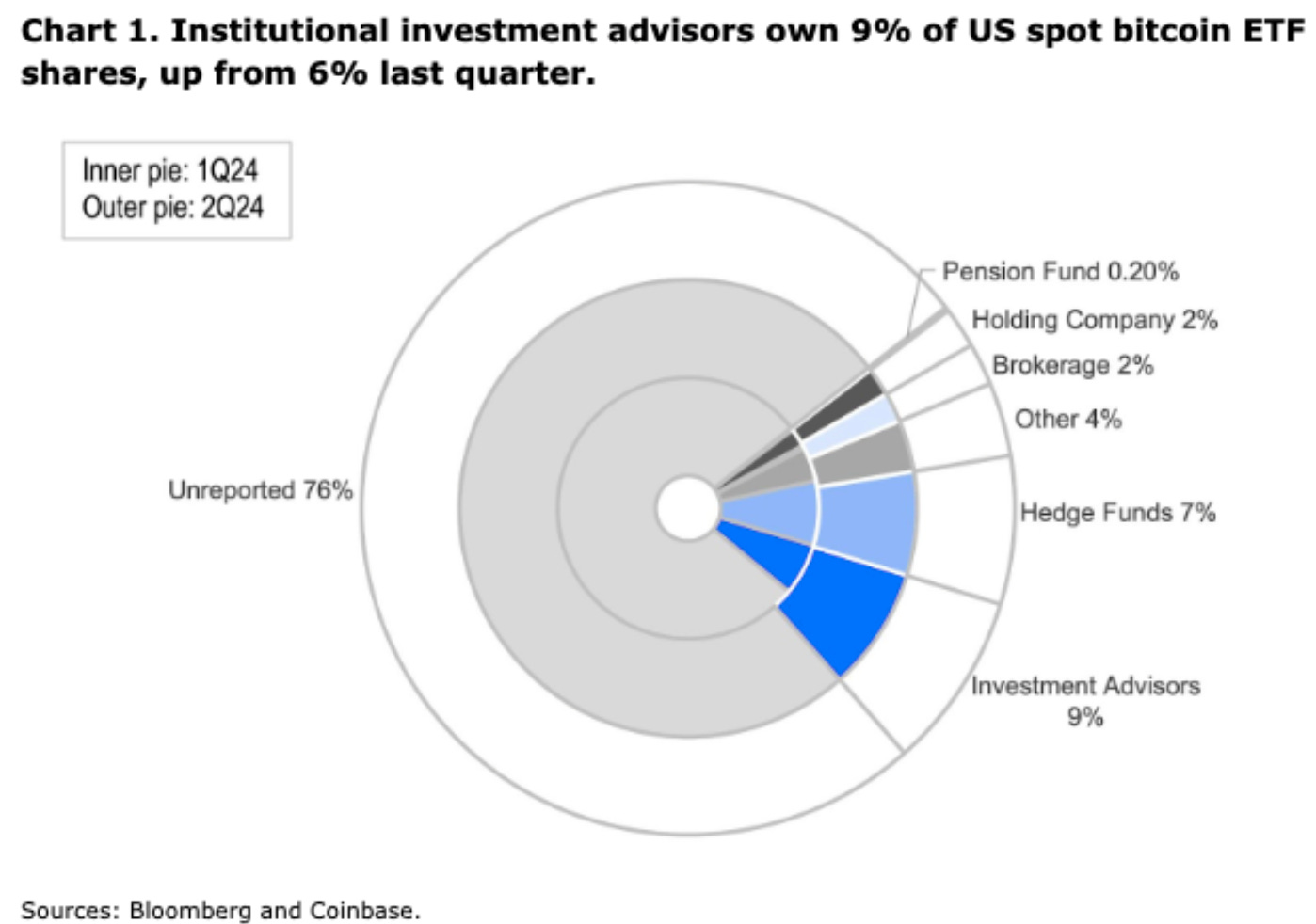
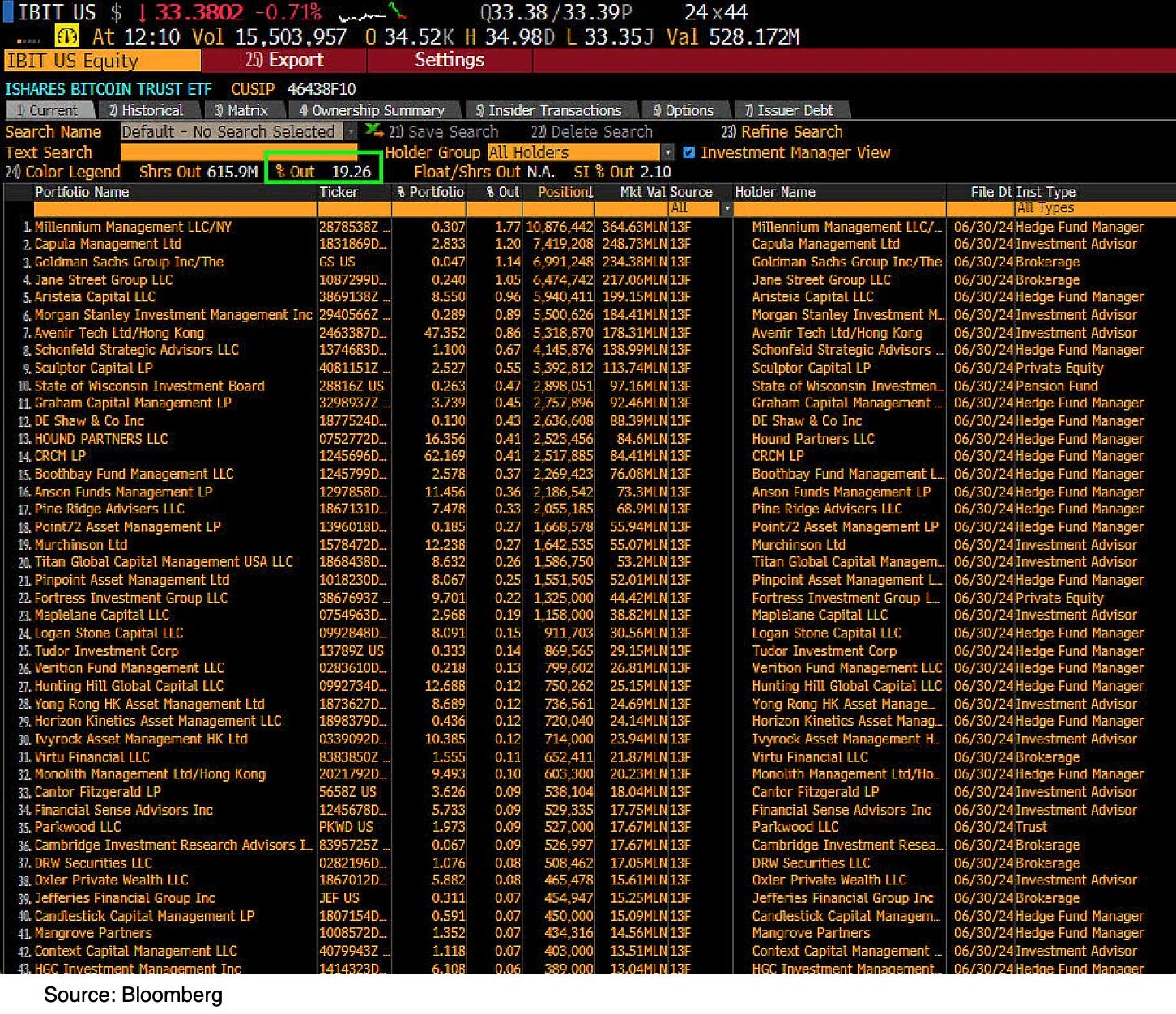
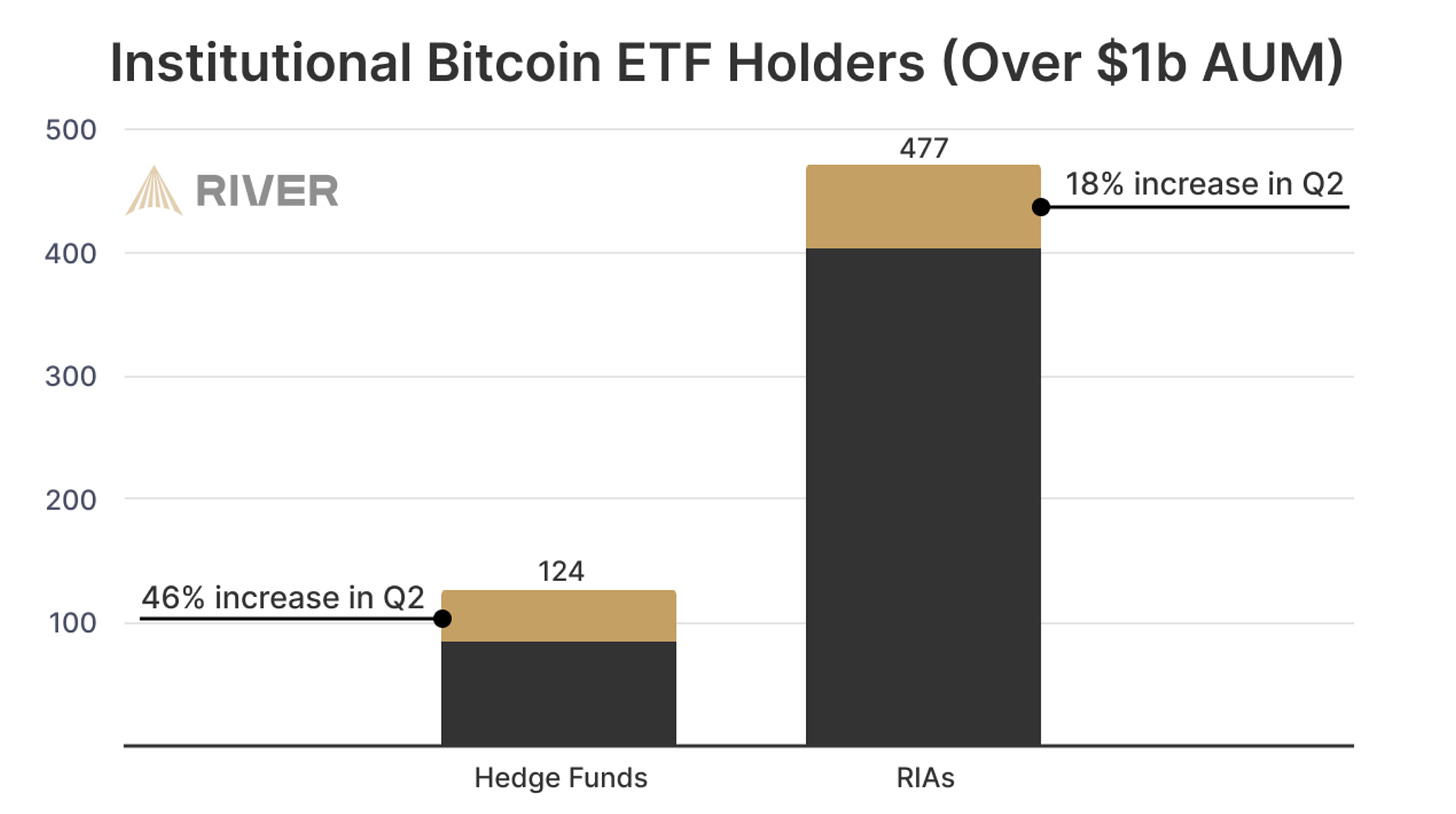
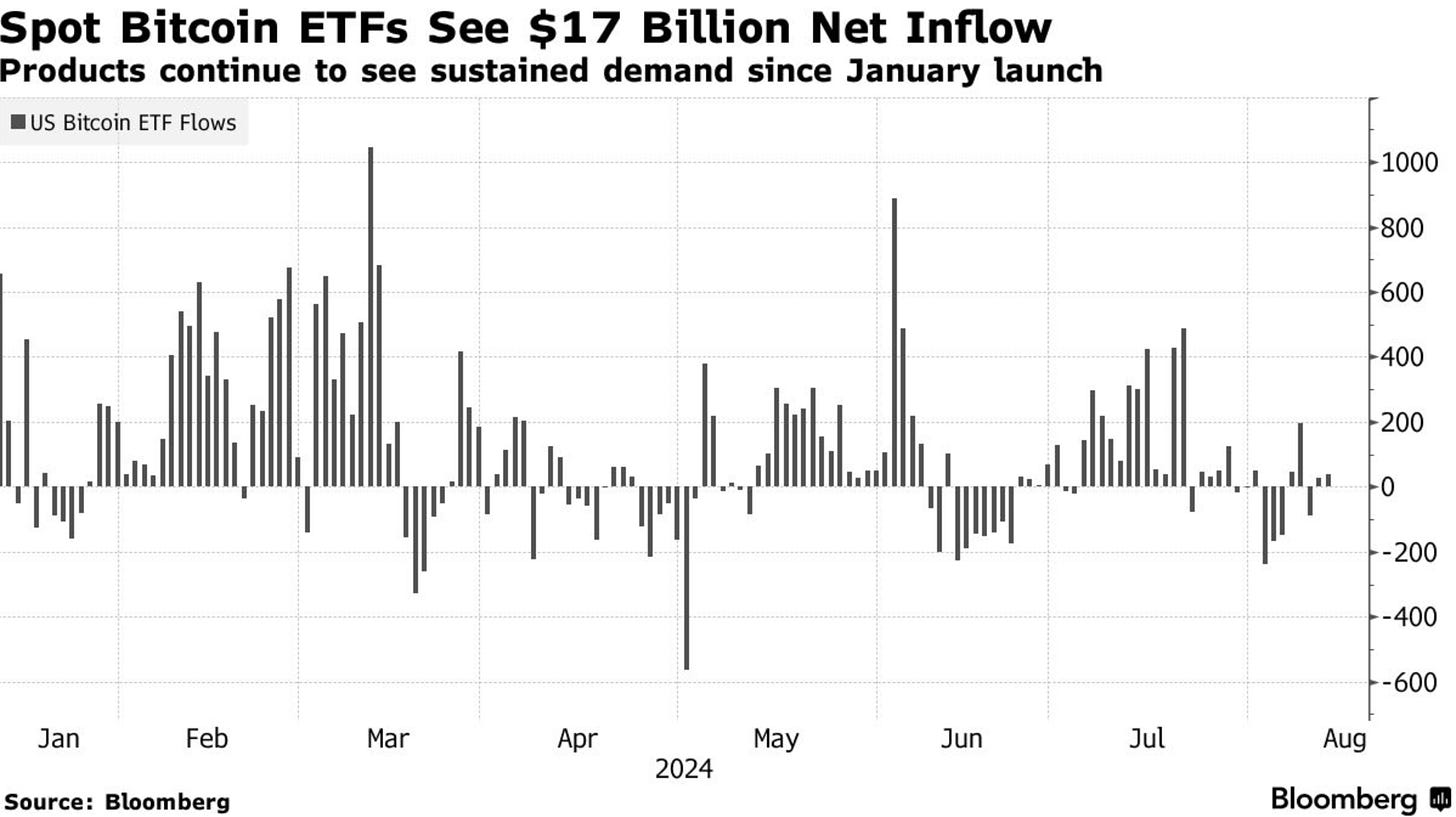


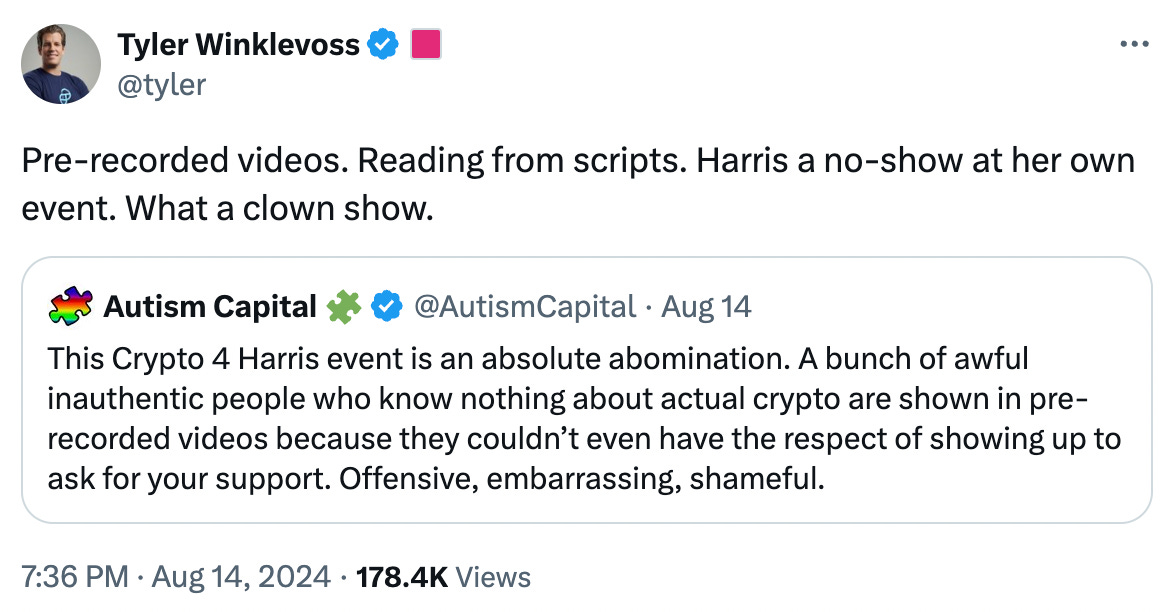
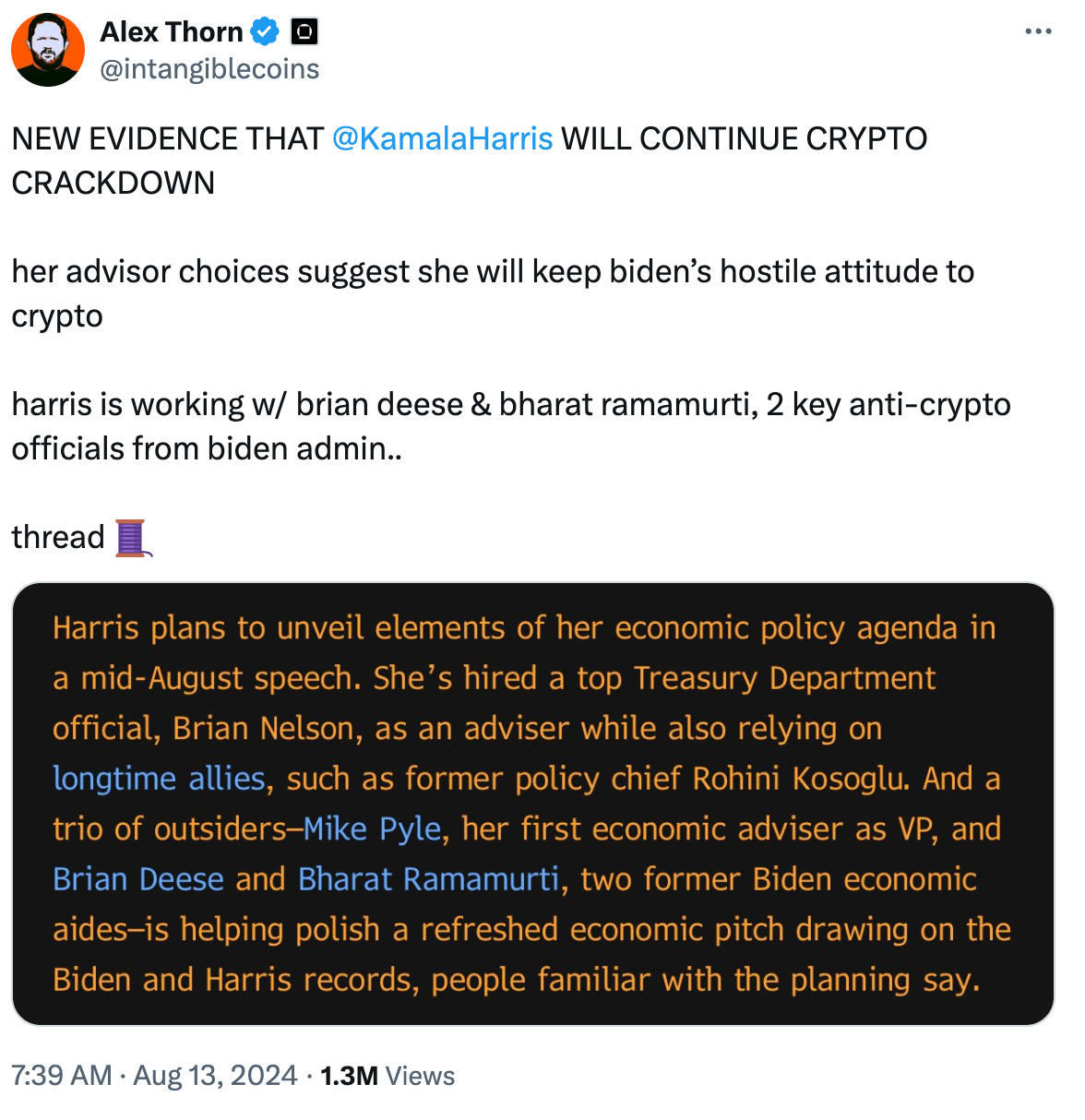
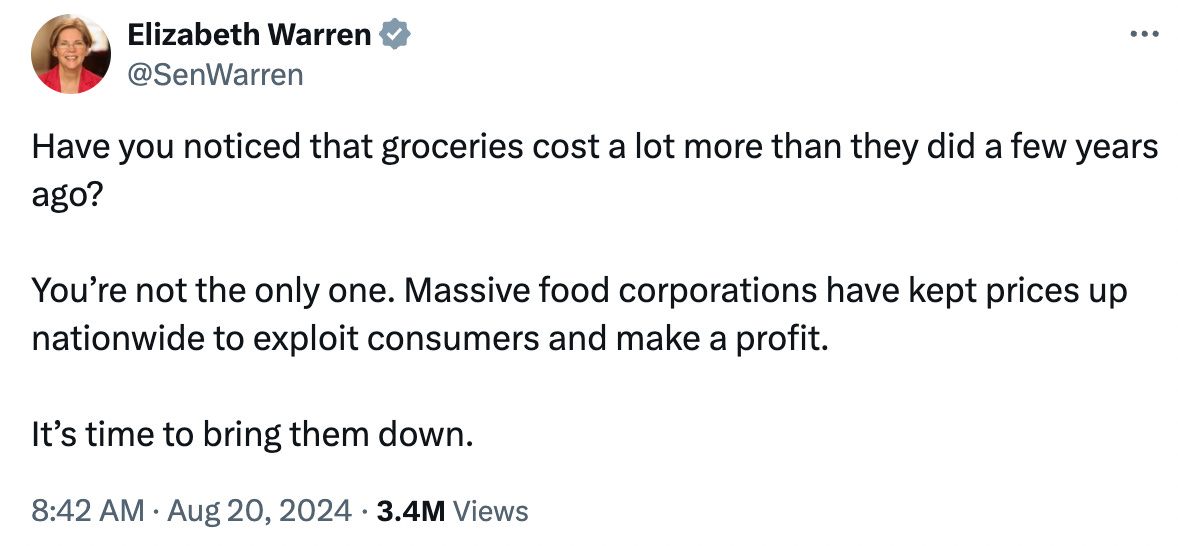

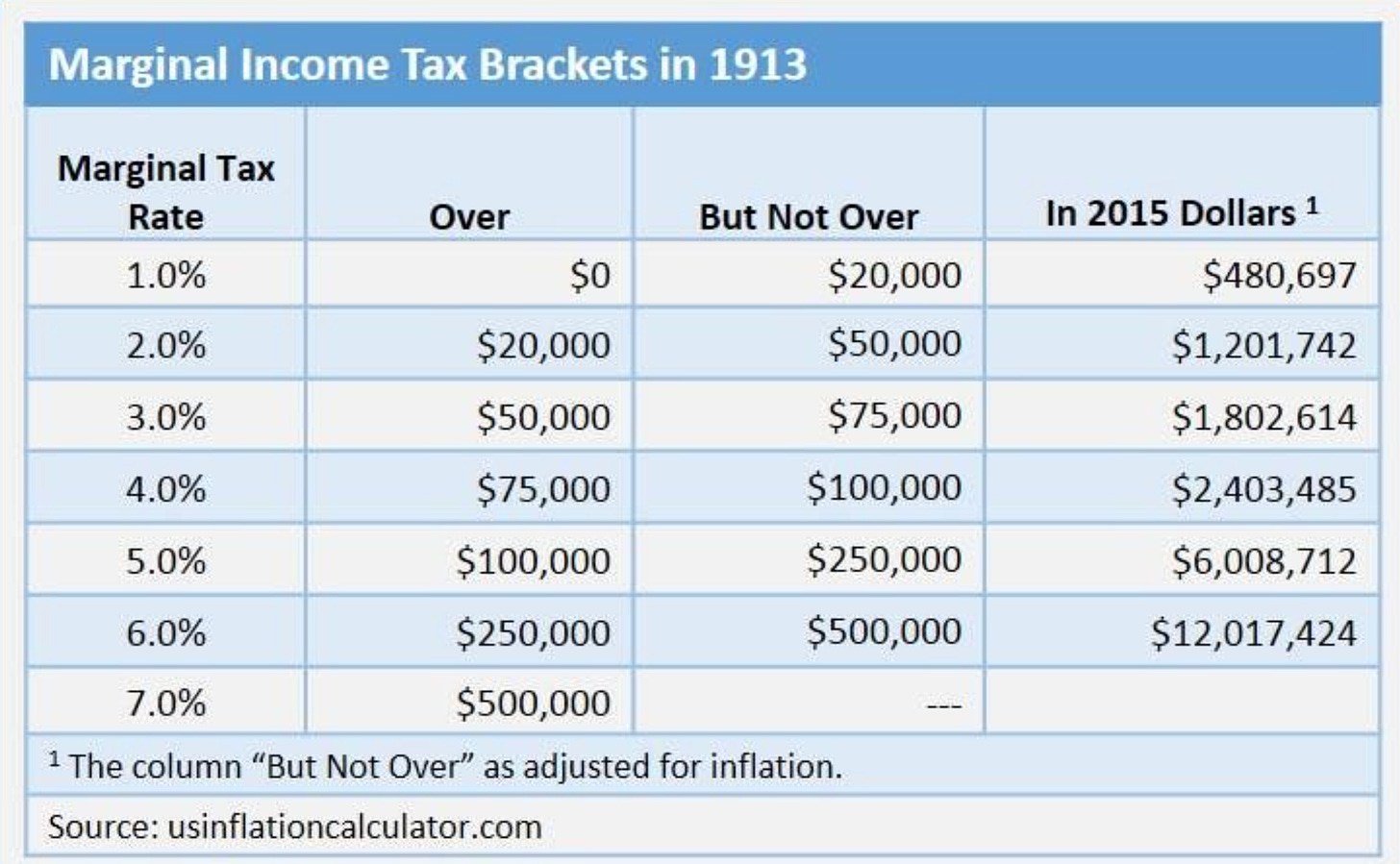


Thanks Sam
Just wait until Pension Funds start allocating 1% a piece!